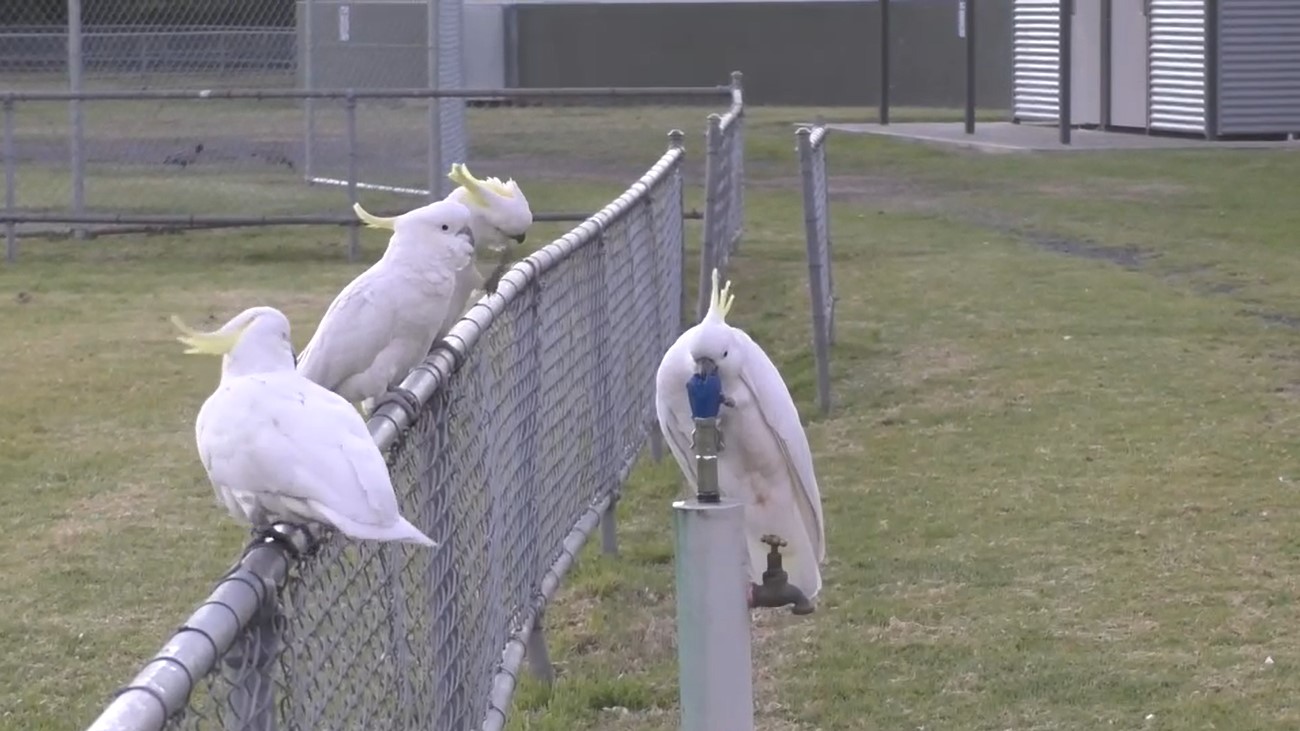News release
From:
Emergence of a novel drinking innovation in an urban population of sulphur-crested cockatoos, Cacatua galerita
The spread of behavioural innovations – solutions to novel problems- can be an adaptive response in fast-changing urban environments. Here, we describe a novel innovation in sulphur-crested cockatoos: the drinking-fountain innovation. Birds in western Sydney have learned how to open and drink from twist-handle public drinking fountains. Successful opening requires fine motor skills and coordinated sequences of actions with less than 50% of attempts being successful. While drinking-fountains are wide-spread, the behaviour seems to be localized, but persisting over at least two year, suggesting that this innovation has spread to from a new local tradition.
Multimedia




 Australia; NSW; ACT
Australia; NSW; ACT



